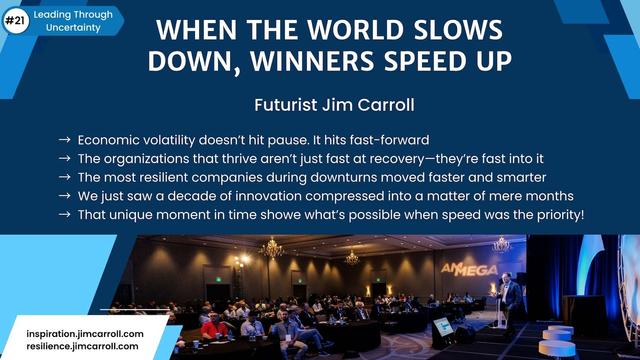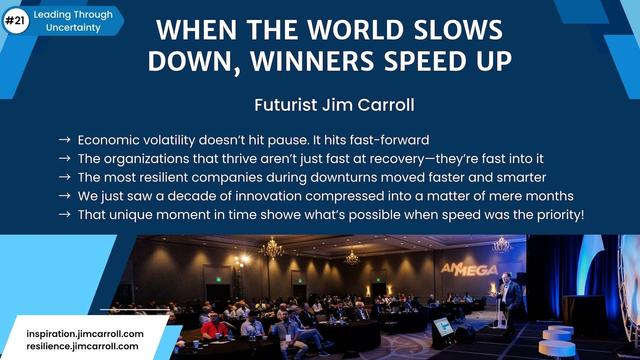Before I finally go the path of reinstalling my computers with #arch (#clonezilla clones of my installs are done already), I wanted to ask the #manjaro users here if anyone has been able to successfully setup #gpu #hardware #acceleration with #amd #radeon GPUs recently? I've posted this to the Manjaro Forum (https://forum.manjaro.org/t/what-is-the-best-way-to-get-gpu-hardware-acceleration-to-use-for-example-in-obs/178317) and will now wait a day or two before finally embarking on the Arch #linux adventure.
Recent searches
Search options
#acceleration
AI does not reason. It applies probabilities.
It's like eating an apple and assuming that everything will be as tasty: http://data.yt/kit/how-ai-works.html
"The result was exactly what we expected," said Schattschneider. "A cube appears twisted, a sphere remains a sphere, but the North Pole is in a different place."
#science
#time
#light
#acceleration
https://www.iflscience.com/experiment-appears-to-confirm-mind-bending-penrose-terrell-effect-predicted-66-years-ago-79219

"When the world slows down, winners speed up" - Futurist Jim Carroll
Here’s the truth: downturns don’t slow the future. They compress it.
They intensify it. They accelerate it.
When the world slows down, winners speed up. Downturns don’t delay the future—they accelerate it.
With that being the case, speed isn’t reckless. In a recession, it’s your superpower. That's because, during a downturn, it’s not just the ideas that matter, it’s how fast you move on them.
In times of uncertainty, there’s an instinct to slow down. Pause. Delay decisions. Wait for clarity.
But history—and recent experience—shows that’s exactly the wrong move. When the environment slows, the smartest companies speed up.
We just witnessed that reality on a global scale in the last few years as the pandemic took hold. If you think back to those first few months, the fact is we compressed ten years of change into just six months. Retailers became digital-first overnight. Healthcare embraced telemedicine in an instant. Manufacturers pivoted supply chains on a dime.
So what happened that allowed for this? Major trends accelerated as organizations learned something new about speed! Agility and flexibility became critical because business models shifted faster. Customers changed quickly as people became more adaptable to new interaction methods! Overall, corporate cultures that were once used to working slowly had to embrace speed - with the result that the attitude ‘it can’t be done!’ disappeared, decision-making paralysis disappeared, the slow structure was put under a microscope, old barriers to new ideas disappeared, and "get it done" became the rallying cry!
#Speed #Acceleration #Resilience #Agility #Opportunity #Future #Decisiveness #Momentum #Crisis #Velocity
Original post: https://jimcarroll.com/2025/05/decoding-tomorrow-your-daily-future-inspiration-when-the-world-slows-down-winners-speed-up/
"When the world slows down, winners speed up" - Futurist Jim Carroll
Here’s the truth: downturns don’t slow the future. They compress it.
They intensify it. They accelerate it.
When the world slows down, winners speed up. Downturns don’t delay the future—they accelerate it.
With that being the case, speed isn’t reckless. In a recession, it’s your superpower. That's because, during a downturn, it’s not just the ideas that matter, it’s how fast you move on them.
In times of uncertainty, there’s an instinct to slow down. Pause. Delay decisions. Wait for clarity.
But history—and recent experience—shows that’s exactly the wrong move. When the environment slows, the smartest companies speed up.
We just witnessed that reality on a global scale in the last few years as the pandemic took hold. If you think back to those first few months, the fact is we compressed ten years of change into just six months. Retailers became digital-first overnight. Healthcare embraced telemedicine in an instant. Manufacturers pivoted supply chains on a dime.
So what happened that allowed for this? Major trends accelerated as organizations learned something new about speed! Agility and flexibility became critical because business models shifted faster. Customers changed quickly as people became more adaptable to new interaction methods! Overall, corporate cultures that were once used to working slowly had to embrace speed - with the result that the attitude ‘it can’t be done!’ disappeared, decision-making paralysis disappeared, the slow structure was put under a microscope, old barriers to new ideas disappeared, and "get it done" became the rallying cry!
It was a fascinating time since it showed what true organizational agility looks like. Necessity didn’t just breed invention—it demanded acceleration. The rallying cry wasn’t “What if?” It was: “What’s next—and how fast can we make it real?”
That wasn't an isolated circumstance though, because history shows that speed wins in uncertainty. Research from multiple downturns tells the same story: Resilient companies move faster. They make bolder decisions. They simplify governance. They respond rapidly to cost shifts and market shocks. They act while others analyze. They reorganize for velocity and enable frontline decision-making. They accelerate when others stall.
Ask yourself:
- are we simplifying decision-making to increase speed?
- are we empowering teams to act in real-time?
- are we using volatility to break down bureaucratic barriers?
- are we rewarding speed of learning over perfection of planning?
Because one thing is certain: the winners of tomorrow are already moving faster today.
#Speed #Acceleration #Resilience #Agility #Opportunity #Future #Decisiveness #Momentum #Crisis #Velocity
Original post: https://jimcarroll.com/2025/05/decoding-tomorrow-your-daily-future-inspiration-when-the-world-slows-down-winners-speed-up/
"The future won’t wait for your zip code to catch up! " - Futurist Jim Carroll
Yesterday I noted that the future won't slow down to wait for you to make a decision.
It also has little respect for those who try to avoid the reality that they are in a global economy.
When you step back and look around the world, something becomes crystal clear: The future is not unfolding in one place. It’s emerging everywhere—in labs in Ireland, factories in Vietnam, logistics hubs in the UAE, AI startups in Seoul, and solar grids in Morocco.
But while this global acceleration is happening, too many leaders and organizations are still thinking small. They’re stuck in a local mindset—tethered to domestic market opportunities, legacy business models, obsolete products or services, or outdated assumptions about where real progress comes from.
Here’s the reality: you can’t lead in tomorrow’s economy by thinking inside yesterday’s borders. I've said it before - the future doesn’t care about your region, your history, or your comfort zone. It flows to where the momentum lives. And that momentum is increasingly global.
- AI isn't just a Silicon Valley story—it's being industrialized in China, scaled in Europe, and accelerated in the United Arab Emirates
- the energy transition isn’t a North American trend —it’s becoming the default infrastructure in Scandinavia and the Middle East
- electric vehicles aren't some radical idea with a narrow future - it's becoming the dominant platform in China, Finland, and elsewhere
- advanced manufacturing isn't stuck in Detroit—it's transforming supply chains in Vietnam, Poland, and Mexico.
Meanwhile, companies that remain locally fixated are finding themselves cut off from opportunity—missing emerging markets, lagging on innovation, and getting blindsided by competitors they never saw coming. The world used to watch what happened in one or two countries to know where things were going. Now? You have to watch everywhere - because innovation doesn’t care about geography.
This reality is accelerating in the current economic and political volatility that defies 2025 - such that while one region tries to restore past glories, the rest of the world has decided to continue moving forward. Watch the latter - not the former - to figure out where tomorrow is now unfolding.
Here’s what that means for your strategy:
- innovation is borderless.
- local thinking limits opportunity.
- a global mindset = competitive advantage.
- the future flows to momentum, not geography.
So ask yourself: Are you making decisions based on where the world once was? Or are you aligning with where it’s already going?
Because the future isn’t local anymore.
It’s global.
And it’s moving fast.
**#Global** **#Innovation** **#Future** **#Geography** **#Momentum** **#Opportunity** **#Mindset** **#Competition** **#Acceleration**
Original post: https://jimcarroll.com/2025/04/decoding-tomorrow-your-daily-future-inspiration-the-future-wont-wait-for-your-zip-code-to-catch-up/
"Humanity has endured for 1 million years for one simple reason: it is bound by limits. It is effectively regulated, and it is this regulation that lies at the heart of its genius.
[…]
"Capital very quickly relied on the sciences, and this was not simply the result of cultural impregnation.
"Classical science separates and analyses. All capital relies on this powerful process and adds to it control through quantification. A principle of devitalisation at the heart of modern technique.
"This thanatocratic principle of capital, without which it is nothing, takes place in three stages: privatisation of the means, industrialisation of devitalisation, and being as a commodity."
Thread in French: https://piaille.fr/@Ciriaco/113083670282268574 by @Ciriaco
"What makes you unique is what will make you successful!" - Futurist Jim Carroll
From one book project to two others!
I'm working away on Escaping Mediocrity, but the other book that is waiting in the wings is "Being Unique."
I've been away from the project for some time, but came to realize that, like the lost Basement Tapes, I've got a lost Chapter 11 of the book that I wrote and misplaced! Since I'm not sure where we stand with the project at this point - I've been away from it for so long - I'm not sure if
I worked it into the most recent 'final' manuscript or not!
Reading it, it's a pretty good summary wrap-up for the book, and so I'll share it here!
----
The world is moving at a blistering pace. The future isn't just coming - it's accelerating. And in this high-velocity reality, being different isn't just an option - it's your strategic weapon for getting there first.
That much should be clear from reading this book.
The Uniqueness Imperative
With that being the case, here’s the key point you should take away: the safe path to tomorrow is now the riskiest route.
That’s because while others race to conform, real opportunities emerge for those who dare to stand apart.
This isn't just about being different - it's about being ahead.
Consider these realities:
Innovation happens at the edges, where unique thinking flourishes
Breakthroughs come from those who see patterns others miss
The future belongs to those who refuse to fit into today's boxes
Think about how the world works now:
While everyone chases the same opportunities, the unique find new ones
When others seek consensus, the different ones create breakthroughs
As many follow established paths, the distinctive forge new ones
The Strategic Power of Being Different
That’s what you need to keep in mind as you carve out your unique place in the world.
The future marketplace has no room for the ordinary. Every commodity skill is being automated. Every standard approach is being disrupted.
Every conventional wisdom is being challenged.
You need to think about your uniqueness as your strategic superpower: and here’s where your uniqueness becomes strategic:
When you think differently, you see opportunities first
When you act differently, you get to those opportunities faster
When you innovate differently, you create opportunities others miss
And you need to do this at the speed demanded by today’s world.
----
Jim’s book, Being Unique — And Why It Will Get to Your Future Faster, will be released sometime during the spring of 2025!
#Uniqueness #Innovation #Strategy #Acceleration #Differentiation #Leadership #Future #Success #Disruption #Opportunity
Original post: https://jimcarroll.com/2025/02/daily-inspiration-being-unique-what-makes-you-unique-is-what-will-make-you-successful/
Daily Inspiration: "Follow the science" - Futurist Jim Carroll
If anything will keep me rooted in reality and on the side of optimism in 2025 it will be by continuing to follow the science.
This is in a society in which it seems an incredible number of people continue to reject the reality of both the fact of science itself and the acceleration that is occurring, which is, by and large, improving their lives. Odd.
Consider these observations from a recent keynote. The cost of sequencing the human genome has gone from about $100 million in 2011 to $200 or less today. The cost of 3D printing from about $50 per cm2 in 2010 to less than fifty cents today. Battery storage technology has gone from $1,100 per kWh to less than $100 today.
While it's difficult to state the absolute accuracy of numbers such as this because things are moving so fast, the fact is that similar trends abound.
(lots and lots of stats in the post)
I could go on, but you get the point.
We live in the era of the acceleration of science, a relentless pace, constantly accelerating even faster. The impact is far-reaching impacts in every single human endeavor. It leads us to fantastic discoveries such as lab-grown human blood for transfusions and surgeries; automated medical and pharmaceutical research laborites; self-healing concrete that is safer and longer lasting 3d printed human organs for transplants; synthetic bacteria used for new materials science; the medical discovery that involves major discoveries every 48 hours; and other fascinating new developments.
Science is at the heart of every single discovery, every significant invention, every massive disruption, and every profound transformation.
We'll spend much of 2025 with a ridiculous theatrical experience unfolding that involves grandiose showmanship by those eager to take out their anger and frustration on the very scientists who are leading to a better future.
How do we get through it all? In my case, I'll continue to track the trends that will define our future by following the reality of science.
It's where I discover my optimism, reinforce my hope, and continue to discover my exhilaration with tomorrow.
#Science #Innovation #Technology #AI #Progress #Future #Discovery #Research #Acceleration #Evolution
Original post: https://jimcarroll.com/2024/11/daily-inspiration-25-things-for-2025-2-follow-the-science/
Today’s #training: #Tapering before Saturday’s #race:
5 km #Endurance (6:00/km)
3 #acceleration #sprints
#RunBackHome
"Technique is no longer some uncertain and incomplete intermediary between humanity and the natural milieu. The latter is totally dominated and utilized (in Western society). Technique now constitutes a fabric of its own, replacing nature."
– Jacques Ellul in “Recherche pour une Ethique dans une société technicienne,” Morale et Enseignement, 1983, page 7
Some notes on the haiku above...
I have seen it various places observed that exponential growth is such that if you have population that doubles every 20 years, then 20 years before you reach any point of "too much", the world will be only half full. We struggle with that because it's taken all of human history fill half the world, so we may feel we have plenty of room. But exponential growth sneaks up, and if it's doubling every 20 years, half full is almost full.
The same, then, with exponential rise in any quantity, such as temperature. We may look back at previous rises in temperature and think "no big deal", but that intuition, that desire to use experiential knowledge, is not going to serve us well. We invented, or learned to describe, mathematics so that we could reason better than our primitive intuitions lead us to do. Our brains like to presume linearity, but the effects we see are not linear. What we know from math tells is that we must take nonlinear effects seriously, lest we get surprised in a possibly swift, surprising and fatal way.
We're in denial that this is happening, but the science says something truly horrible is about to happen. We're not doing well with conventional planning. We look around and, in spite of dire warnings, things look normal. But maybe notmal is what things look like just before it all collapses.
We perhaps need to fast forward to what's going to happen and say, "what will it have looked like just before?" If the answer is "just like any other day", then we need to find something else to look to in order to know we're about to fail. Something we cannot so easily deny.
From time to time, we see mass death events in other species. Rivers or lakes full of dead fish, cooked, metaphorically, though almost also literally, by the heat. One day that will be us.
I heard a news story recently about a large number of heat deaths in India. The problem is already horrible. Every life matters. And yet that number is dwarfed by what's coming. Millions, even billions. A few hundred will seem quaint.
But also like we should have heeded the warnings better. Or allowed ourselves to see them at all.
Rather than shrug off warnings, figure out what warning you're not going to ignore. Draw a line in the sand. Say it out loud, to friends, family, the world. Ask them to hold you to account, to make you finally care. Ask them what THEIR line is.
What is your line?
When do we stop and make this our global focus? If not now, when?
#AI enables acceleration to replace humans with machines.
@alex and @emilymbender are working on clarifying that: #TheAICon.
@estelle already has food for thought: https://techhub.social/@estelle/111811330219400218
Factcheck: Why the recent ‘acceleration’ in global warming is what scientists expect
"There is increasing evidence of an #acceleration in the rate of warming over the past 15 years.
This acceleration is broadly in line with projections from the latest generation of #ClimateModels.
The speed up in warming projected in the latest climate models (known as CMIP6) is similar to the acceleration estimated by prominent climate scientist Dr James Hansen and colleagues."
"Reclaiming the use of digital devices at the receiving end does nothing to change the whole technical system. Digital technologies cannot be reclaimed, because they are the fruit of a mass society, of a society of experts, constituted of domination and exploitation, of complex and gigantic infrastructures from which citizens can only be dispossessed."
Julia Laïnae, Nicolas Alep in "Contre l'alternumérisme", 2020
“The means of communication, the irresistible output of the entertainment and information industry carry with them prescribed attitudes and habits, certain intellectual and emotional reactions which bind the consumers to the producers and, through the latter to the whole social system. The products indoctrinate and manipulate; they promote a false consciousness which is immune against its falsehood… Thus emerges a pattern of one-dimensional thought and behaviour.”
― Herbert Marcuse
"Until degrowth becomes an urgent and imperative watchword, industrial capitalism will continue to interpret the demands of social movements as technical challenges".
"We cannot be satisfied with improving the energy efficiency of data storage while Internet traffic increases exponentially. We cannot continue to deploy satellites en masse on the assumption that some of them will provide a better understanding of deforestation..."
~ Andreas Malm in "How to sabotage a pipeline"
@gka It's no longer just a record, this time it's a record number of records! Meta-record!
“The idea of effecting decentralization while maintaining technical progress is purely utopian.”
~ Jacques Ellul




